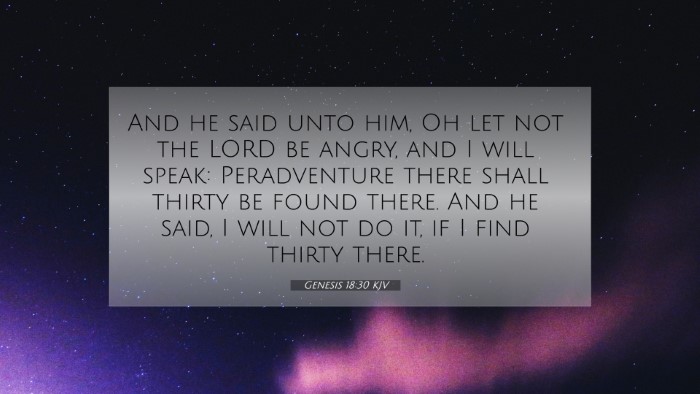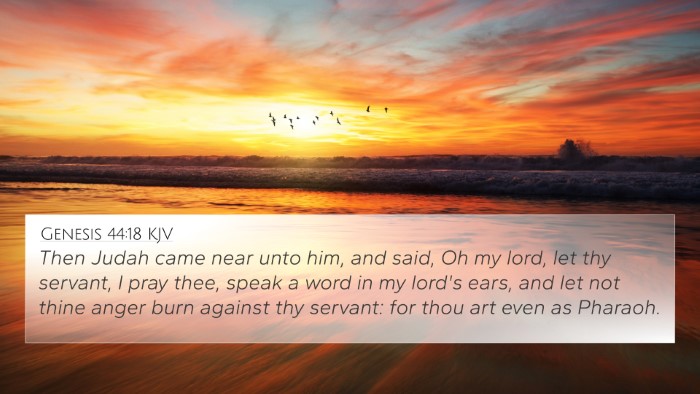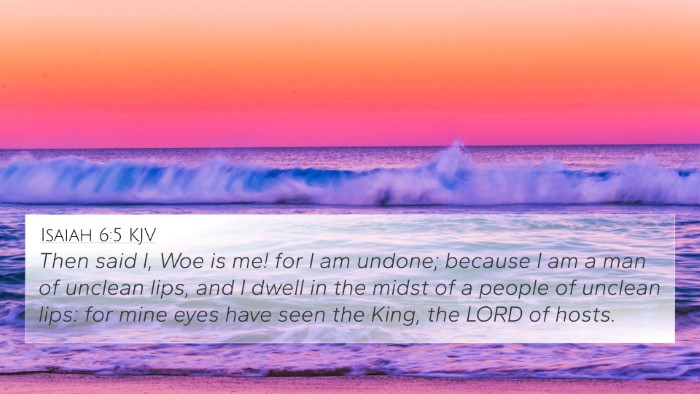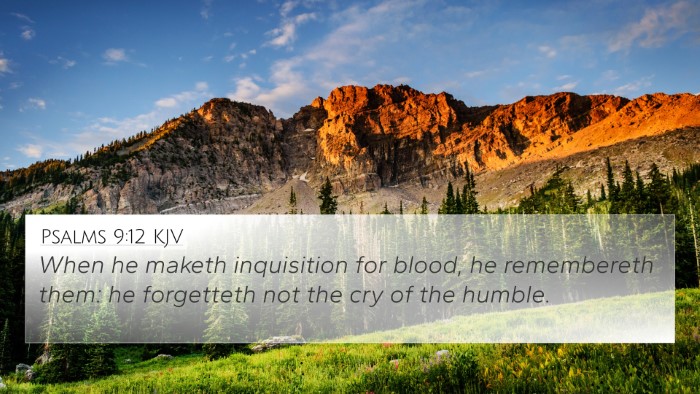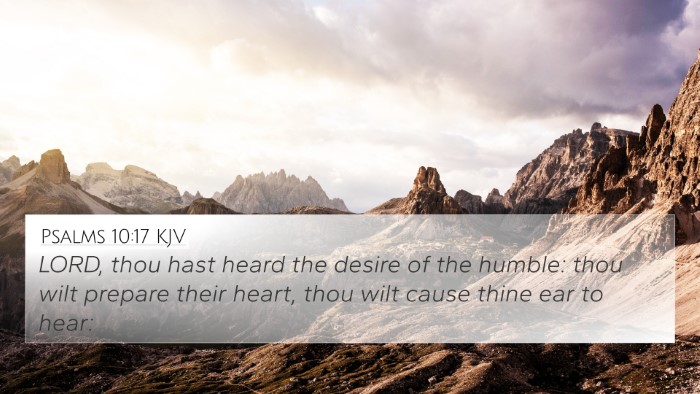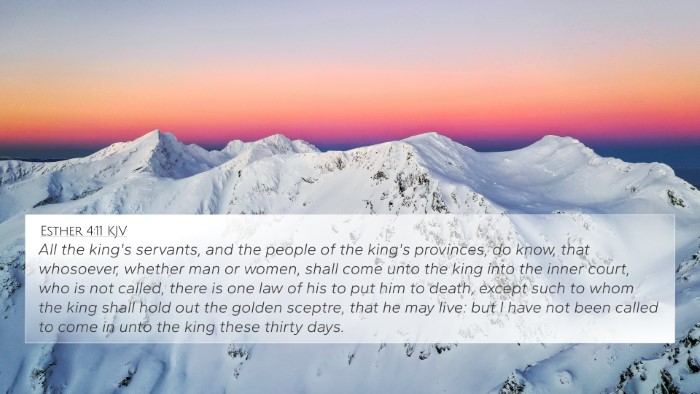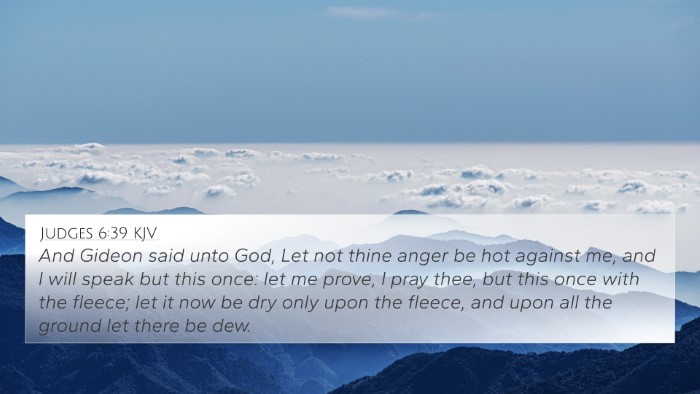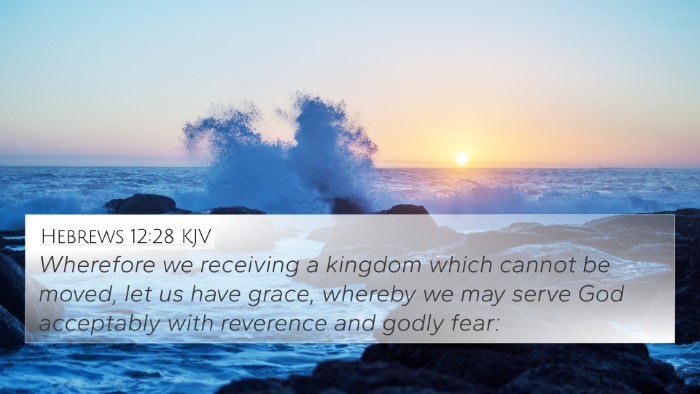Understanding Genesis 18:30
Genesis 18:30 states: "And he said, 'Oh, let not the Lord be angry, and I will speak again but this once. Suppose ten are found there.' He answered, 'For the sake of ten I will not destroy it.'" This verse is part of the narrative where Abraham pleads with God to spare the cities of Sodom and Gomorrah.
Verse Summary
This verse highlights a profound exchange between Abraham and God where Abraham intercedes for the righteous people in Sodom. Abraham's concern is not just for the city but also showcases his understanding of God's justice and mercy.
Commentary Insights
-
Matthew Henry:
Henry emphasizes Abraham’s willingness to engage with God in prayer. He notes that Abraham's request illustrates the character of a true intercessor, who pleads not for his own interests but for others. This displays a deep sense of compassion towards those who may be unrighteous yet posses some good.
-
Albert Barnes:
Barnes highlights God's response to Abraham's request, showing His willingness to spare the cities for the sake of ten righteous souls. He articulates that this merciful attribute of God sets a precedent for understanding divine justice against the backdrop of mercy.
-
Adam Clarke:
Clarke elaborates on the nature of Abraham's negotiation with God. He points out that this episode reflects on God's justice and benevolence, allowing for a discussion about righteousness and the thresholds of divine judgment.
Connection to Other Scriptures
This verse can be cross-referenced with several key Biblical texts that highlight themes of intercession, justice, and mercy:
- James 5:16: This verse underscores the power of righteous prayer, resonating with Abraham's intercessory role.
- Genesis 18:22-23: The preceding verses provide context for Abraham's inquiry, revealing the dialogue between the patriarch and God.
- Exodus 32:11-14: Moses similarly intercedes for the people of Israel, highlighting a recurring theme of intercession found in Scripture.
- Luke 18:1-8: The parable of the persistent widow showcases the importance of persistent prayer and advocacy before God, akin to Abraham’s plea.
- Ezekiel 18:23: Reflects God's desire for mercy and repentance rather than judgment, paralleling the spirit of Abraham's appeal.
- Romans 5:8: Displays God's love and mercy, a theme central to the dialogue between Abraham and God in Genesis.
- 1 Timothy 2:1-4: Encourages prayers for all, emphasizing the importance of intercession in the Christian life.
Thematic Connections in Scriptures
Genesis 18:30 ties into larger Biblical themes that connect various passages, such as:
- The Nature of God's Justice: Explored throughout Scripture, including Isaiah 30:18 and Psalm 9:16.
- The Role of the Intercessor: Seen in the lives of figures like Moses and Jesus (Hebrews 7:25).
- God's Mercy and Forgiveness: Expounded in texts like Psalm 103:10-12 and Micah 7:18-19.
Conclusion
The verse Genesis 18:30 serves not just as an isolated scriptural reference but as a significant moment revealing the deep relationship between God and His faithful servants. It positions Abraham as a model for intercession and highlights God's readiness to engage with humanity's pleas for mercy amidst justice.
Resources for Further Study
To further explore Biblical cross-referencing, consider utilizing:
- Bible concordance for identifying related verses.
- Bible cross-reference guide to connect verses across the Old and New Testament.
- Comprehensive Bible cross-reference materials to enhance understanding of thematic connections.
The study of Genesis 18:30 provides insight into the nature of divine justice and mercy, encouraging further exploration of how scripture interlinks throughout the Bible.


